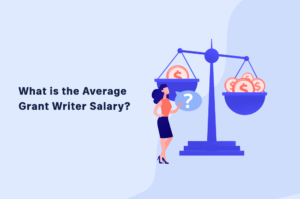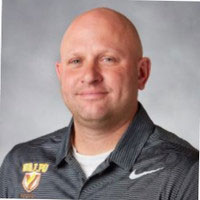Our reviewers evaluate career opinion pieces independently. Learn how we stay transparent, our methodology, and tell us about anything we missed.

Hiring managers are thinking about all the ways a grant cycle can go sideways. Missed eligibility requirements, incomplete attachments, budgets that do not match the narrative, and deadlines that sneak up because someone did not reply with a letter of support.
In my opinion, the biggest shift is learning to talk like a reliable operator, not just a strong writer. You want to sound like the person who keeps the submission clean, calm, and compliant, even when things get messy.
In this article, I’ll go through some common interview questions, but also through what hiring managers are looking for and how to prepare.
First, let’s talk about what hiring managers are looking for.
They want someone who can prevent avoidable mistakes while still telling a strong story. In practice, that means you understand guidelines, you can coordinate stakeholders without creating friction, and you have a system for tracking details so nothing gets lost.
When you answer questions, it helps to anchor your examples in outcomes like “we submitted early,” “we reduced revisions,” or “we avoided a compliance issue.”
I’d focus on process. Even if you have fewer wins to point to, you can show that you know how to build an outline from guidelines, track attachments, version budgets, and run structured reviews.
If you can explain your workflow clearly, you’ll often beat candidates who have “more experience” but sound chaotic.
![]()
Next, let’s go over the interview process.
Most processes start with a screening call, then a hiring manager interview focused on workflow and stakeholder coordination, and often include a work sample. The work sample might be a rewrite, a mini statement of need, or a quick compliance review of the provided guidelines.
I always prepare as if there will be a practical test, because even if there isn’t one, it sharpens your conversation.
I practice with time limits, because that’s what makes people freeze. Pick a one-page prompt and force yourself to outline first, then draft, then do a quick compliance and clarity pass. If you can explain why you made specific choices, you’ll come across as senior even if you’re not.
With that clear, below you’ll find common questions organized in categories such as common questions, writing-specific questions, etc.
I’d keep this tight and specific: types of funders (foundation, corporate, federal), typical award sizes, and what parts of the process I owned. Then I’d share one short story that shows how I work, ideally something involving constraints like tight deadlines or tricky guidelines. The goal is to sound grounded and practical, not like you’re reading a resume out loud.
Connect it to mission, but also show that you understand the operational side of grant work. You might say something like, “I care about your focus on workforce development, and I also like roles where the work is structured and measurable.” Then mention that you enjoy building repeatable processes, because most organizations need that just as much as they need strong writing.
A strong proposal is aligned, specific, and easy to score. It mirrors the funder’s priorities and language, spells out clear objectives with measurable outcomes, and makes the budget feel inevitable instead of random. When the narrative and numbers tell the same story, reviewers can relax and focus on your merits.
Eligibility and fit come first, then readiness. If we don’t have the staffing, partnerships, or data to execute and report, that’s a red flag even if the money looks tempting. I also weigh workload and competitiveness, because chasing everything usually leads to burnout and sloppy submissions.
A tracker and internal milestones beat memory every time. I work backwards from the submission deadline and set earlier internal dates for drafts, budget sign-off, letters of support, and final assembly. I also flag risks early, because “surprises” are what blow up timelines.
I focus on alignment, evidence, and clarity. Alignment means building the outline directly from the guidelines and speaking to what the funder cares about, not what we wish they cared about. Evidence and clarity mean using relevant data points and writing so a reviewer can skim headings and still understand the plan.
Each funder is a different audience with different priorities. If they emphasize outcomes, I lead with outcomes and measurement, and if they emphasize capacity, I highlight systems, partners, and proof of execution. Generic copy is easy to spot, so I aim for funder-specific language while staying honest and specific.
Start with what’s explicit and build around that. I document assumptions and ask clarifying questions when possible, especially if ambiguity affects eligibility, budget caps, or required formats. When no answer is available, I choose the most conservative interpretation and keep the narrative straightforward and defensible.
Truthful and specific beats impressive every time. I avoid inflating outcomes, and if we don’t have the data yet, I state what we will measure and how. That approach builds trust with reviewers and protects the organization long term.
It starts with clarifying internal priorities and capacity, then matching funders whose priorities align with our program work and geography. After that, I check eligibility requirements and typical award size so we don’t chase grants that are too small or misaligned. The more disciplined the research, the more energy we have for writing strong proposals.
I ask whether we can actually deliver what we’re proposing. Do we have staffing, partners, a realistic timeline, and a plan for reporting and compliance? If readiness is weak, I recommend passing or propose a narrower scope we can execute confidently.
A living tracker keeps things from turning into last-minute scrambling. I track deadlines, required attachments, award size ranges, match requirements, and notes on funder priorities. I also list “next cycle” opportunities so we’re not always operating in emergency mode.
Leaders don’t want a list of twenty grants, they want the top three with clear tradeoffs. I summarize opportunities with a short recommendation that includes fit, risks, effort, and what we’d need from stakeholders. Making the decision easier is one of the fastest ways to add value.
I use a repeatable workflow: fit check, kickoff, outline mapped to guidelines, narrative draft, budget and budget narrative in parallel, attachment collection early, edit for clarity, revise for compliance, final checks, then submission and follow-up. I keep clarity editing and compliance editing as separate passes, because combining them is how details get missed. A good process is the difference between calm submissions and chaos.
Short interviews work best when they’re structured around proposal sections. I ask program managers and subject matter experts about outcomes, activities, timeline, staffing, risks, and evaluation, and I request existing documents before we meet. The more structured the questions, the less you rely on someone’s memory in the moment.
Clear expectations early prevent slow approvals later. I define who approves what and by when, then make review requests specific, like “validate outcomes and timeline” instead of “any thoughts.” When you make it easy for stakeholders to contribute, you get better inputs and fewer last-minute surprises.
A checklist and a compliance map keep you out of trouble. Every requirement gets a home in the outline, and every required attachment gets an owner and a due date. I also do a final line-by-line check against the guidelines before submission, because that’s where you prevent disqualifiers.
I confirm sources and validate numbers with the right stakeholder, usually finance or program leadership. I keep a simple numbers log so the same figure stays consistent across the narrative, the budget, and any tables. When one number changes, I immediately check for ripple effects because mismatches are a common reviewer complaint.
Plain language first, then necessary detail. I add short definitions or context where it helps, and I avoid jargon unless the funder expects it and it improves precision. The goal is for a reviewer to understand the plan even if they’re not a domain expert.
I document the discrepancy and ask targeted follow-up questions to resolve it. If it’s a decision-level conflict, I escalate to the right owner so we get a final answer before the last draft. Once a decision is made, I make sure every section reflects it consistently, because inconsistency kills reviewer confidence.
The budget should be built from the project plan, not invented afterward. I map costs to activities and timeline, then build budget categories that match the funder’s template. Finance staff and program managers validate line items so we’re not guessing.
Constraints are design requirements. If the funder caps costs, I adjust scope, staffing, or timeline so the narrative still matches the numbers and the plan stays credible. A smaller plan we can execute beats a big plan the budget cannot support.
I tie costs directly to activities and outcomes, and I keep it concrete. Instead of “staff time,” I’ll write “0.5 FTE program coordinator to manage enrollment and partner reporting across 12 months.” A good budget narrative makes the numbers feel reasonable and intentional.
I start with whatever the funder provides, because reviewers often expect that structure. Internally, a standard spreadsheet plus a notes column for assumptions keeps changes traceable. The real tool is consistency and version control, because stale budgets cause mismatches fast.
First I update the budget, then I check narrative references, staffing assumptions, and timeline language immediately. I also version files clearly so stakeholders don’t keep editing old numbers. If the change is significant, I flag it to leadership so expectations stay aligned before submission.
I like stories that include program managers, finance, and leadership, because that’s the reality of most submissions. The strongest examples show how roles were coordinated, differing priorities were handled, and the narrative stayed consistent across inputs. Bonus points if you mention one friction point and how you resolved it without drama.
I anchor the discussion on the funder’s priorities, evaluation criteria, and what the proposal needs to score well. When stakeholders disagree, I offer options with tradeoffs so the conversation becomes decision-making, not opinions. Once a decision is made, I document it and apply it consistently throughout the draft.
A short pre-read plus structured questions keeps meetings productive. I ask for existing program documents first, then use meeting time to clarify gaps instead of rehashing what’s already written down. That approach respects time and usually produces more accurate inputs.
I separate feedback into compliance, clarity, and preference. Compliance changes happen, clarity improvements usually happen, and preference feedback becomes a discussion if it conflicts with funder expectations. The goal is to keep the proposal coherent and funder-aligned even with multiple voices.
Clear objectives, respectful communication, and consistent follow-up go a long way. I avoid overpromising, because trust matters more than sounding impressive. Over time, funders remember the organizations that are responsive, realistic, and easy to work with.
On-time reporting and clean documentation are the foundation. I share impact data in a factual way rather than spinning it, and I capture notes on what the funder seemed to care about. Those priorities often reappear in renewal or continuation grants.
Deep research comes first, then positioning the organization around funder priorities. If engagement is appropriate, I personalize outreach and ask specific questions rather than sending vague emails. The best “new funder” strategy is being clear about fit and execution readiness.
I keep a single point of truth, like a relationship log or shared notes, so stakeholders don’t send conflicting messages. I also define who the official communicator is before outreach starts. Consistency is a relationship strategy, not just an admin habit.
I use a tracking system with deadlines, internal milestones, attachment owners, and review dates. Then I prioritize by fit, potential funding size, and effort required, because not every grant deserves the same energy. Clear prioritization is how you avoid burnout and sloppy submissions.
Owners and due dates solve most attachment problems. I track status in a checklist and run an attachments audit before submission. Attachments are a silent failure point because they’re easy to forget and hard to recreate at the last minute.
I do separate passes for clarity, compliance, and formatting, then a final check against the guidelines line by line. That last pass is where you catch page limits, required headers, and missing answers. If there’s time, a second set of eyes is gold even for a quick peer review.
Slack in the schedule and early risk communication are the biggest stress reducers. I focus on what moves the proposal forward and avoid perfection for perfection’s sake. Calm is a workflow choice, not a personality trait.
Rejection is data, not a personal failure. I request feedback, analyze likely reasons for rejection, and document specific changes for the next cycle like stronger evidence, tighter alignment, or a clearer budget narrative. The goal is showing steady improvement, not pretending you win every time.
I map feedback to funder priorities and evaluation criteria first. If feedback conflicts, I prioritize what affects scoring and compliance, then propose an approach that keeps the narrative coherent. When necessary, I escalate to a decision-maker so the team isn’t stuck in endless debate.
I share the outcome, the known reasons, and concrete improvements we can make. I keep it factual and forward-looking, because emotional post-mortems waste energy. Then I propose next steps like a resubmission plan or a new opportunity list.
After each cycle, I capture a short lessons-learned doc, even if it’s only a few bullets. Over time, that becomes a playbook for what works with specific funders and what reviewers tend to dislike. That playbook is how you raise success rates steadily.
I track submissions, awards, and total funding received, but I also look for patterns by funder type and program area. A flat success rate can hide useful insight, like doing well with local foundations but struggling with state grants. The goal is learning and improving, not just counting wins.
Quantitative measures include award rate, funding secured, and time-to-submit. Qualitative measures include funder feedback, reviewer comments, and internal stakeholder satisfaction with the process. Both matter, because a “win” that burns out the team isn’t really a win.
Evaluation data should support your claims and shape your measurement plan. I connect the proposal narrative to impact data and expected outcomes, then build a realistic way to track progress. That same framework becomes useful for reporting and strengthens renewal and continuation applications.
Pick a story with real constraints: ambiguous guidelines, missing data, partner delays, or a tight deadline. Then explain how you created order, like tightening the outline, clarifying assumptions, or translating technical information into accessible language. Interviewers want to see how you operate when conditions aren’t ideal, because that’s most grant cycles.
Show the moves, not just the result. Maybe you built a clearer checklist, aligned stakeholders through a quick kickoff, or created an early draft to trigger better feedback. Strong answers make it obvious you can problem-solve without creating chaos.
End with one concrete change you made to your process. That could be starting attachments earlier, strengthening the compliance pass, or improving how you gather programmatic information. The best grant writers get slightly better every cycle.
I watch funder newsletters, track priority shifts, and stay connected to professional communities. I also compare guideline changes between cycles, because subtle edits often signal what reviewers care about now. Continuous learning is part of the job, especially if you handle renewals and continuation grants.
Renewals are a performance report plus a future plan. I lead with outcomes and lessons learned, then show how the next phase builds on what worked while addressing gaps. A good renewal feels like a logical next step, not a brand-new proposal.
Common formats include rewriting a narrative for clarity, drafting a mini statement of need from a prompt, building an outline from guidelines, or identifying compliance gaps. These tests are less about creativity and more about judgment, structure, and attention to detail. If you can explain your choices clearly, you’ll score well.
Pick a real public opportunity and build a compliance map, then write one page of narrative and a short budget narrative. Practice explaining your decisions out loud in two minutes, because interviews reward concise reasoning. Doing that a few times builds confidence fast.
If you want to stand out in grant writer interviews, aim to sound like someone who makes life easier for everyone around them.
Grant writing is research, compliance, budgets, stakeholder coordination, and then writing on top of all that. When you answer questions, talk about your systems and decision-making, not just your passion for storytelling.
That’s how you come across as the person who protects the organization from avoidable mistakes while still producing proposals that are funder-aligned and persuasive.
Here are the most frequently asked questions about grant writer interview questions.
Bring a portfolio that’s easy to access, plus 2 to 3 strong samples or case studies you can talk through quickly. If your work is confidential, bring sanitized excerpts, outlines, and checklists that show how you think. Interviewers mostly want proof you can follow guidelines and coordinate details without dropping things.
Often, yes, especially for roles where writing quality and compliance are critical. The test might be a rewrite task, a short narrative draft, or a compliance review of guidelines. I prepare as if there will be a test every time, because it improves your answers even when there isn’t one.
You don’t need to be an accountant, but you do need a reliable process. Explain how you collaborate with finance staff and program managers, how you map costs to activities, and how you ensure the budget matches the narrative. The key is showing you can prevent mismatches and justify costs clearly.
Keep it factual and constructive. Explain what feedback you received (or requested), what you believe the rejection reasons were, and what you changed afterward in your process or writing. Strong candidates show learning and resilience, not perfection.
Start with volunteer work or a mock proposal based on a public opportunity. Include artifacts like an outline mapped to guidelines, a statement of need, a proposal narrative excerpt, and a budget narrative sample. Even small, clean samples can show you understand the workflow and the compliance mindset.
Prepare three stories that prove different strengths: collaboration, handling ambiguity, and improving process. Use a simple structure: situation, what you did, what changed, what you learned. If you anchor the story in funder priorities and outcomes, you’ll sound much more credible.
If you are new to grant writing and are looking to break-in, we recommend taking our Grant Writing Certification Course, where you will learn the fundamentals of being a grant writer, how to dominate grant writer interviews, and how to stand out as a grant writing candidate.
Get the weekly newsletter keeping 23,000+ technical writers in the loop.
Get certified in technical writing skills.









Get our #1 industry rated weekly technical writing reads newsletter.